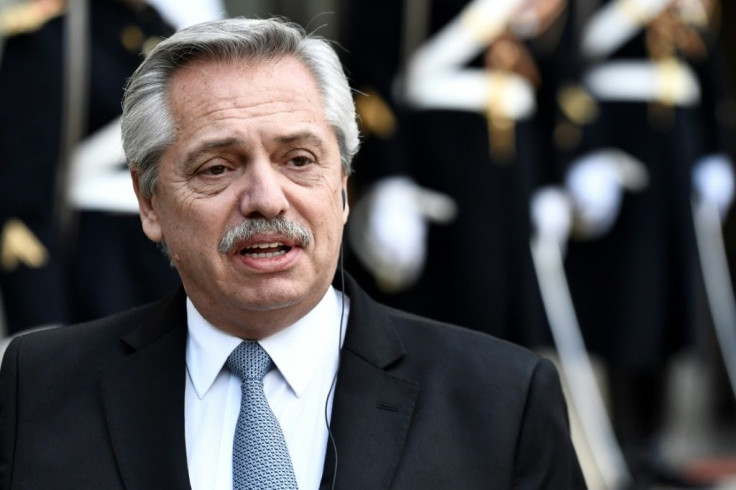Argentina Faces Race Against Time To Renegotiate Debt

Backed by the IMF, Argentina is looking to renegotiate its debt but it faces a race against time to secure short term relief.
Since assuming power in December, President Alberto Fernandez's government has insisted it will not be able to pay off its creditors if its economy -- in recession since mid-2018 -- doesn't resume growth.
And more than $30 billion of debt repayments are due before the end of March.
Faced with unyielding creditors who won't give an inch, Argentina found an unlikely ally when the International Monetary Fund declared that the South American country's debt is "unsustainable" following a week long mission that ended on Wednesday.
"We were accused of being populists, irresponsible, but it turns out that we woke up today with the IMF having said we were right," center-left Fernandez said on Thursday.
Argentina is battling to avoid another situation like 2001 when it defaulted on $100 billion, becoming a market pariah.
The country currently owes $311 billion -- more than 90 percent of its GDP.
It's hoping to renegotiate $195 billion, including the $44 billion it owes the IMF.
"I think we have a good chance to negotiate something reasonable because the IMF wants to avoid a default," Hector Torres, Argentina's former representative to the world finance body, told a local radio station.
The IMF's position "isn't encouraging for the Argentine economy but it is for the negotiation. It's a slap on the back for the government," Matias Rajnerman, the chief economist at consultancy Ecolatina told AFP.
"Obviously, the IMF is an authoritative voice in the finance market, and it saying that the debt is unsustainable could make private creditors adapt their positions."
Argentina is struggling with inflation of more than 50 percent, a major currency depreciation and a poverty level that has soared almost to 40 percent.
For the IMF, Argentina needs "a definitive debt operation -- yielding a meaningful contribution from private creditors ... to help restore sustainability."
This "removes any doubt that private bondholders will need to stomach large haircuts in a restructuring," said consultancy Capital Economics.
"But investors are unlikely to accept those anytime soon, and we think that a protracted wrangle is on the cards."
Claudio Loser, a former IMF manager, said that right now "there's no way of knowing the level of debt relief" that could be on the table, but estimated that it could be 30 percent of the capital.
However, he said that unless the IMF comes to a new agreement with Argentina, "its creditors won't need to stick to it, because there's no clear plan."
Capital Economics expects the IMF to "lend Argentina some more money to repay the old loan -- in effect extending the maturities of the obligations."
In 2006, president Nestor Kirchner, whose cabinet chief was Fernandez, suspended Argentina's relationship with the IMF when he canceled a $9.6 billion debt the country owed the finance body.
That relationship was re-established under the liberal president Mauricio Macri (2015-19) when Argentina agreed a staggered $57 billion bail-out loan with the IMF.
However, Fernandez turned down the outstanding $13 billion when he took over in December.
Time is running out for Argentina as it has $34.3 billion of debt due at the end of March.
Only $4.2 billion of it is denominated under foreign legislation so Capital Economics believes Argentina will be able to meet its 2020 debt repayments.
"Over 80 percent of them are due on local-law instruments, which policymakers could continue to reprofile unilaterally."
That was the approach taken by Macri's government last year.
However, "the urgency on the government's part to thrash out a deal will only ramp up next year."
© Copyright AFP 2024. All rights reserved.




















